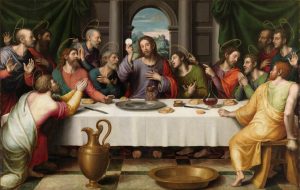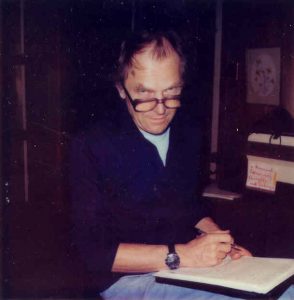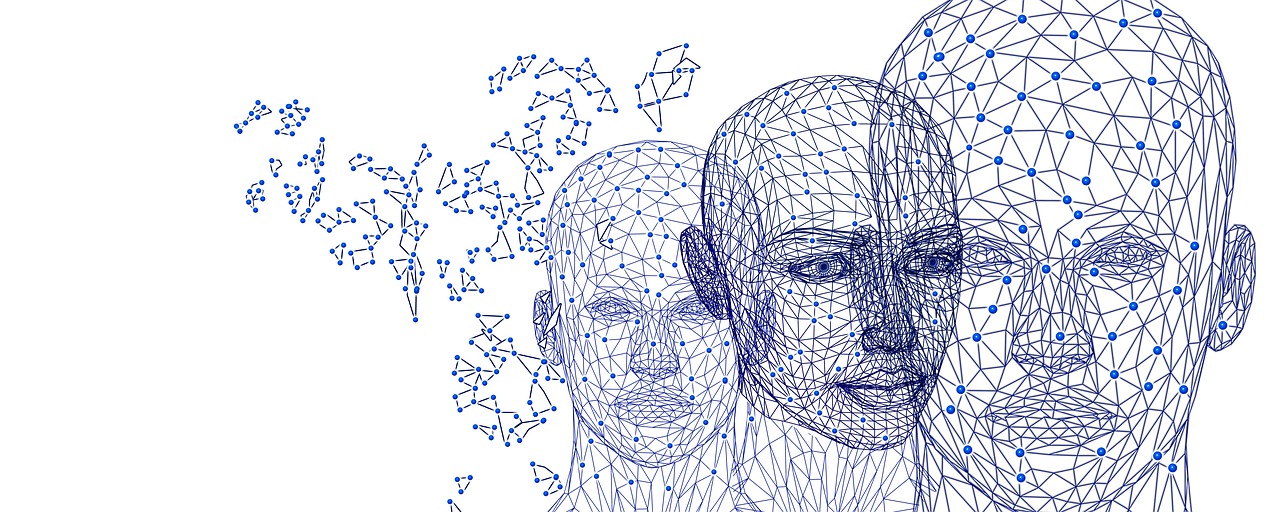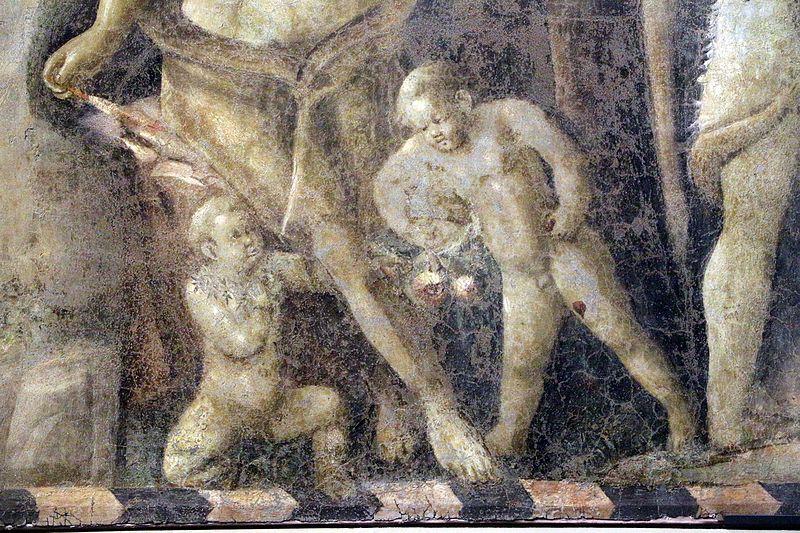The following is the first installment of a two-part series.
Recently, Martin Luther and the Lutheran Reformation has received heavy criticism in various theological and philosophical circles. In many scholarly treatments of the history of western philosophy and culture, Reformation has been treated as one step on a trajectory from nominalist revolution to liberal Protestantism, atheistic secular modernism, and relativist postmodernism. The Reformers not only created a schism within the church, but they brought forth all the horrors of the modern age. Instead of providing a cure for the spiritual crisis of late medieval theology, they gave birth to a horrible epidemic.
To quote a few examples: Charles Taylor sees the Reformation as an agent of disenchantment with reality, which casts out the sacred from the world, and creates a dichotomy between the public secular reality and more private spiritual sphere.[1] Louis Dupré suggests that the Reformers were unable to escape the grip nominalist dualism where the nature and grace inhabited totally different spheres of reality. This affected ideas about the complete depravity of human nature and forensic justification, which ultimately left nature (and reason) unhealed.[2]
In similar vein, Michael Allen Gillespie sees Reformation’s indebtedness to nominalism as the primary reason for a dualistic world where the faith and reason, church and society, Christians and pagans are separated and pitted against each other — with violent consequences.[3] John Milbank has made similar claims.[4] In his famous Regensburg address, Pope Benedict XVI claims:
Dehellenization first emerges in connection with the postulates of the Reformation in the sixteenth century. Looking at the tradition of scholastic theology, the Reformers thought they were confronted with a faith system totally conditioned by philosophy, that is to say, an articulation of the faith based on an alien system of thought. As a result, faith no longer appeared as a living historical Word but as one element of an overarching philosophical system. The principle of sola scriptura, on the other hand, sought faith in its pure, primordial form, as originally found in the biblical Word. Metaphysics appeared as a premise derived from another source, from which faith had to be liberated in order to become once more fully itself. When Kant stated that he needed to set thinking aside in order to make room for faith, he carried this programme forward with a radicalism that the Reformers could never have foreseen. He thus anchored faith exclusively in practical reason, denying it access to reality as a whole.[5]
Even Richard Dawkins wants to have a piece of Luther! Dawkins uses Luther as an example of religious anti-rationalism in his The God Delusion.[6] All in all, Luther’s thinking is perceived as enforcing the ideas of individualism, fideism, and relativism that are commonly labeled as “postmodern.” How should we think about such claims?
I begin with a very postmodern key, that is, by denying definite meanings of the concepts in my title. There is no such a thing as postmodern philosophy and there is no such a thing as Lutheran theology. By this denial, I mean to underline the nebulous nature of human institutions, movements, and thought patterns.
However, this move, also known as anti-essentialism, can have various degrees. I do not intend to say that we can label almost anything (or nothing) as postmodern or Lutheran. Postmodernists often take each other to task regarding the very nature of their way of thinking, and even more so, Lutherans are well-known for their eagerness to play king of the hill: who is the one that represents the genuine form of Lutheranism.[7]
Despite this vagueness, people generally are quite reliable in recognizing things either as postmodern or Lutheran. This is due to some general characteristics that these things often have. In the following, I have (in good Lutheran fashion) formulated some theses. The theses are split between the philosophical and the theological so that philosophical theses portray some broadly understood postmodern attitudes regarding various philosophical topics.
Then I will present the same theses with a theological twist so that they correlate with, again broadly understood, Lutheran sensibilities.[8] I will offer a short commentary of each topic and then make a few distinctions where the general sensibilities of postmodernism and Lutheranism, in my view, differ from each other.
Theses
Philosophical theses
- On language: Our understanding of the world is deeply dependent on language.
- On metaphysics: There cannot be a neutral form of metaphysics that could serve as a starting point for rational enquiry.
- On method: There is no a priori method that can help us in our enquiry.
- On epistemology: Claims of truth and knowledge are viewed with suspicion.
- On ethics: One should try to guide his or her actions so that they serve liberation.
- On forgiveness: Forgiveness should be unconditional and free from all obligations. True forgiveness forgives the unforgivable.
Theological theses
- On language: the signified contains always something more that can be expressed by the means of language. In theological language, the signified is made present through the sign.
- On metaphysics: The subject of theology cannot appropriately be approached through neutral metaphysics. Metaphysical models should be construed on the basis of salvation history.
- On method: Theological method should not be decided a priori but based on the subject matter.
- On epistemology: Human reason is both severely limited and tainted by sin. Theological knowledge is based on God’s self-revelation, not in human achievement.
- On ethics: The Golden rule and the Decalogue form the basis of ethical deliberation. Hierarchies can serve both good and bad ends.
- On forgiveness: The aim of forgiveness is to establish a loving connection between persons, even after unforgivable acts.
Commentary
On language
If there is one central postmodern thesis, it is this one about language: Language exists between the world and us. Depending on the thinker, the thesis can be viewed in a strong or weak sense. In the former sense, it means that language hides the reality from us and prevents us from ever actually reaching it. We never get to things themselves and our dealings are always with words, which do not have fixed meanings. The weaker sense admits the mediating nature of language but does not see this as something that blocks our access to reality; instead it is language that grants us the access, or it gives us the reality.[9]
Now, it is easy to see how these ideas might overlap with Lutheran theology. Lutheran theology has traditionally been perceived as a theology that is very much interested in words.[10] In Luther’s own theology, we see special interest towards words and their metaphysical nature.
Namely, for Luther, theology starts with words and proceeds to metaphysics through language and historical events. The debate with theologians of Zwinglian bent demonstrated this clearly. For Zwinglians, the rules of logic and philosophical metaphysics were taken in a priori so that they would function as the norm for what reality is truly like; instead Luther wanted to start with the events and linguistic accounts of those events and form the philosophy so that it portrayed the essence of these events. Luther could go to extremes when defending this basic rule.
For example, his famous utterance about reason (Vernunft) as “the devil’s whore” took place in the context of arguing against Karlstadt who wanted to hold on to the rule of praedicatio identica and which kept him from affirming the real presence of Christ’s body in the Eucharist.[11] Obviously, Luther’s basic point about language has some affinity with some postmodern sensibilities, especially those who wish to underline language as a way to access the world.[12]
However, there is a clear dissimilarity between Luther and even the weaker forms of postmodern thought on language. The difference lies in the way signification works in theological language compared to philosophy. Luther thinks that theological language makes present the things that are being referred in a special way.[13] Therefore Christian faith and secular reason use and understand the nature of certain concepts in different ways.
In the normal philosophical use, concepts refer to absent objects, but in theology the concepts contain the essence to which they refer. Therefore, Luther insists on the real presence of Christ in the bread and wine as opposed to idealist and docetic interpretations because here especially the words “hoc est” indicate a special mode of presence.[14]
Secular philosophy (by which Luther means the way language is normally used in everyday contexts) cannot handle this kind of predication. In keeping with this, the same concepts used in philosophy and theology have their own meanings and uses within their respective spheres.[15]
This does not mean that the significance of the words in theology and philosophy are totally disconnected. Instead there is always a common signification between theological and philosophical use. When a concept of ordinary language is transferred to the theological realm, it goes through “metaphorical extension.” On the one hand, the meaning changes but on the other hand, it remains constant.
In the case of “A Mighty Fortress is our God,” the words “mighty fortress” have, to some extent, same meaning when used to refer to an actual fortress and God, but in the case of God, the meaning is extended. There is no radical break but rather a stretching of the meaning. The addition, however, cannot be figured out without revelation. By looking at a fortress, we do not come to understand that God is like that fortress if God himself does not reveal this resemblance.[16]
 On metaphysics
On metaphysics
Postmodernists typically claim that metaphysics is violent. This claim relates to the thesis on language. Human concepts (and metaphysics is done with the help of concepts) can never depict reality as it is; therefore, any attempt to define reality with the help of words must be an arrogant act.
Furthermore, speaking about God effectively means taking God captive. This claim is typically coupled with an accusation of “onto-theological error”: using the word “to be” (esse) in the same way of God and creatures. This, according to critics, makes God a being and a member of created order (even if the greatest being of all beings).[17]
There are, however, ways within postmodern philosophy to allow one to speak about metaphysics, but often this is just a way of referring to not-world, of which we can speak only be denying that it is something ultimately different from the world.[18]
Lutheran theologians, since Luther himself, have been suspicious of grand metaphysical projects. Already in The Heidelberg Disputation (1519), Luther launches a critique of metaphysical theology that tries to climb a ladder from this world to transcendence: “That person does not deserve to be called a theologian who looks upon the invisible things of God as though they were clearly perceptible in those things which have actually happened [Rom. 1.20].” Luther’s “Theology of the Cross” is often seen as a critique of metaphysics but this is clearly an overstatement.[19] Instead, Luther offers a critique of particular kind of metaphysics that does not proceed from a properly Biblical basis (this was already discussed in relation to language).
This enterprise was intensified in later Lutheran generations, especially after Kant.[20] Someone could even claim that Lutheranism produced postmodern philosophy or at least created a seed-bed where it could grow.[21] These claims are, to some extent, warranted although Luther and other magisterial reformers would quite likely abhor many things that are attributed to them. Even if there has been an anti-metaphysical trend in Lutheran theology and Luther scholarship, I take that this turn to be ultimately a wrong one.
Luther’s criticism of a particular use of certain metaphysical traditions cannot be taken as a wholesale rejection of metaphysics but as a call to do metaphysics in a better way.[22]
However, as one can imagine this issue is not a simple one. To a great extent, the discussion has shifted from Luther to Karl Barth’s legacy (and his relation to Thomism) in recent years and there seems to be no end in sight in this debate.[23]
On method
Methodical anarchism is typical for postmodern thinkers. For example, Paul Feyerabend has argued against any universal rules that should be observed in scientific inquiry for (at least) two reasons. First, no one has been able to come up with these rules and, second, settling oneself with a particular set of rules would stifle the progress of science.[24]
Feyerabend’s anarchistic approach can be seen as a form of anti-positivism and anti-modernism. Postmodern theologians have typical embraced these proposals because this new climate allows theologians to pursue their own projects without the need to pay homage to scientists and one particular scientific method.[25]
A moderate form of anti-modern turn in science is critical realism. Critical realists acknowledge the perspectival nature of knowledge, but they do not abandon the pursuit of knowledge and truth. Our knowledge of the world is always deficient, but it can get better little by little. Also, critical realists see the world as stratified, which results in methodological pluralism. For example, a tumor can have chemical, physical, sociological, psychological and theological effects in the human person. Employing just one method to understand what the tumor is would give us very thin view of the phenomenon.
The development of Lutheran theological method can be seen in relation to the medieval and late medieval development in theology. Since the rise of Aristotelianism in the 12th century there had been an on-going debate on the scientific nature of theology.[26] Simply put, Dominicans wanted to interpret theology as theoretical science, whereas Franciscans wanted to see theology as a practical science.
If in theoretical science one attempted to form true propositions with the help of syllogisms and proofs, in practical science the goal of knowledge was the correct conduct that helped to achieve the optimal form of human behavior. It is obvious that Luther was drawn towards the Franciscan form of doing theology.[27] This practical emphasis becomes apparent in Luther’s pastoral style; he is not doing systematic theology, as he is more preacher than philosopher.[28]
Dr. Theol. Dr. habil. Olli-Pekka Vainio (University of Helsinki) is University Lecturer of Systematic Theology at Faculty of Theology, University of Helsinki. His research interests include history of philosophy and theology, and contemporary philosophy of religion. His most recent publications include Disagreeing Virtuously (Eerdmans 2017) and Cosmology in Theological Perspective (Baker 2018).
[1] Charles Taylor, A Secular Age (Cambridge: Belknap, 2007), 79, 733.
[2] Louis Dupré, Religion and the Rise of Modern Culture, (Notre Dame: University of Notre Dame Press 2008), 22–23.
[3] Michael Allen Gillespie, The Theological Origins of Modernity (Chicago: University of Chicago Press, 2008), 101–169.
[4] See, e.g., John Milbank, Theology and Social Theory (Oxford: Blackwell, 1990), 9. See also his ‘Knowledge: The Theological Critique of Philosophy in Hamann and Jacobi’ in Radical Orthodoxy, eds. John Milbank, Catherine Pickstock and Graham Ward (London: Routledge, 1999): 23.
[5] Benedict XVI, Faith, Reason and the University. Memories and Reflections (2006). www.vatican.va (accessed 1 August 2010).
[6] Richard Dawkins, The God Delusion (New York: Bantam, 2006), 190.
[7] Because the both movements are so hard to pin down, I need to take a risk of oversimplifying and doing some interpretative violence to both of them. Nevertheless, I try to consider nuances as much as possible.
[8] Lutheran theology, or Luther’s theology to be exact, and postmodernism are sometimes coupled in ways that are not totally satisfactory. For example, Carl Raschke (The Next Reformation. Why Evangelicals Must Embrace Postmodernity (Grand Rapids: Baker, 2004), 208-209) claims that Luther “would have been regarded as a postmodernist by the standards of his day”. The claim is surrounded by sound bites of which many are either historically false or misleading. For books that investigate the relation of Lutheran theology and postmodern philosophy in a more detail and from various angles, see e.g., Timothy Stanley, Protestant Metaphysics after Karl Barth and Martin Heidegger (Eugene, OR: Cascade, 2010); Paul R. Hinlicky, Paths not Taken. Fates of Theology from Luther through Leibniz (Grand Rapids: Eerdmans, 2009); Brad Gregory, The Unintended Reformation. How Religious Revolution Secularized Society (Cambridge, MA: Belknap Press, 2012); Jennifer Hockenbery Dragseth, ed, The Devil’s Whore. Reason and Philosophy in the Lutheran Tradition (Minneapolis: Fortress Press, 2011)
[9] James K.A. Smith, Jacques Derrida. Live Theory (London: Continuum, 2005), 16–46.
[10] Robert W. Jenson, Systematic Theology. Vol 2. The Works of God (New York: Oxford University Press, 1999), 270–289. This can be seen in earliest systematic expositions of Lutheran thought, from Melanchthon’s Loci Communes to much larger and later Loci. The loci-method proceeds from the basic biblical concepts, such as sin, grace, and baptism offering a canonical interpretation of these concepts. In this perhaps a bit technical way, the basic ingredient of Lutheran theology is the word as a concept in its canonical context.
[11] WA 18, 164. See Theodor Dieter, “Martin Luther’s Understanding of “Reason”,” Lutheran Quarterly XXV (2011), 249–278.
[12] For a similar account, see James K.A. Smith, Speech and Theology (London: Routledge, 2002).
[13] Some postmodernists (Derrida, among others) like to argue that the meaning of the concepts is deferred endlessly so that we can never give exact account of what they are about.
[14] See especially Luther’s Vom Abendmahl Christi, Bekenntnis (1528)
[15] WA 39 I: 231, 1–3. “Secular” words must be cleansed or “baptized” in order to be used in theology. See also WA 39 I: 229, 16–19.
[16] Dennis Bielfeld, “Luther on language”, Lutheran Quarterly 16 no. 2 (2002): 210.
[17] For discussion, see D. Stephen Long, Speaking of God. Theology, Language and Truth (Grands Rapids: Eerdmans, 2009), See also Marilyn McCord Adams’s refutation of general claims of onto-theology: “What Wrong With the Ontotheological Error?”, Journal of Analytic Theology 2 (2014), 1–12.
[18] This is the case of Heidegger and his followers. S.J. McGrath, Heidegger. A (Very) Critical Introduction (Grand Rapids: Eerdmans, 2008), 103; David Bentley Hart, “Philosopher in the Twilight”, First Things 210 (2/2011) 44–51.
[19] Kari Kopperi, “Theology of the Cross”, in Engaging Luther, ed. by Olli-Pekka Vainio (Eugene, OR: Cascade, 2011), 155–172.
[20] Risto Saarinen, Gotter Wirken Auf Uns. Die Transzendentale Deutung des Gegenwart-Christi-Motivs in der Lutherforschung (Stuttgart: Franz Steiner Verlag, 1989)
[21] Thus, e.g., Gregory, Unintended Reformation; Benedictus XVI, “Faith, Reason and the University. Memories and Reflections”. (online: www.vatican.va)
[22] Erwin Metzke, Sakrament und Metaphysik. Eine Lutherstudie über das Verhältnis des christlichen Denkens zum Leiblich-Materiell (Kreuz: Stuttgart, 1948).
[23] For a good account, see Philip Cary, “Barth Wars”, First Things, March 2015; Thomas White, “Introduction: Thomas Aquinas and Karl Barth – An Unofficial Catholic-Protestant Dialogue”, in Bruce L. McCormack & Thomas Joseph White, O.P. (eds.), Thomas Aquinas and Karl Barth. An Unofficial Catholic-Protestant Dialogue. (Grand Rapids: Eerdmans, 2013), 1-42. See also Adrian Pabst, Metaphysics. The Creation of Hierarchy (Grand Rapids: Eerdmans, 2011); David Bentley Hart, “The Offering of Names: Metaphysics, Nihilism, and Analogy” in Reason and the Reason of Faith, Eds. Paul J. Griffiths and Reinhard Hütter (New York: Continuum, 2005), 256.
[24] Paul Feyerabend, Against Method (New York: Verso, 2010)
[25] Thus, e.g., Jenson, Systematic Theology. Vol 2, 277; Stanley J. Grenz, Renewing the Center. Evangelical Theology in a Post-Theological Era (Grand Rapids: Eerdmans, 2006), 192–225.
[26] Ulrich G. Leinsle, Introduction to Scholastic Theology (Washington DC: Catholic University of America Press, 2010); Robert D. Preus, The Theology of Post-Reformation Lutheranism Vol. I (St. Louis: Concordia, 1970), 202-203.
[27] Heiko A. Oberman, “Luther and the Via Moderna: The Philosophical Backdrop of the Reformation Breakthrough”, The Journal of Ecclesiastical History 54, no. 4. (October 2003): 641–70. In Lutheran scholasticism, the same questions were re-introduced in the form of debate between analytic and synthetic method in theology. Preus, The Theology of Post-Reformation Lutheranism, 44–47.
[28] I do not mean that Luther does not have a philosophical bone in his body since he clearly engaged in deeply philosophical disputes during his career. But even in these disputes he sides with the practical ideals of science.




